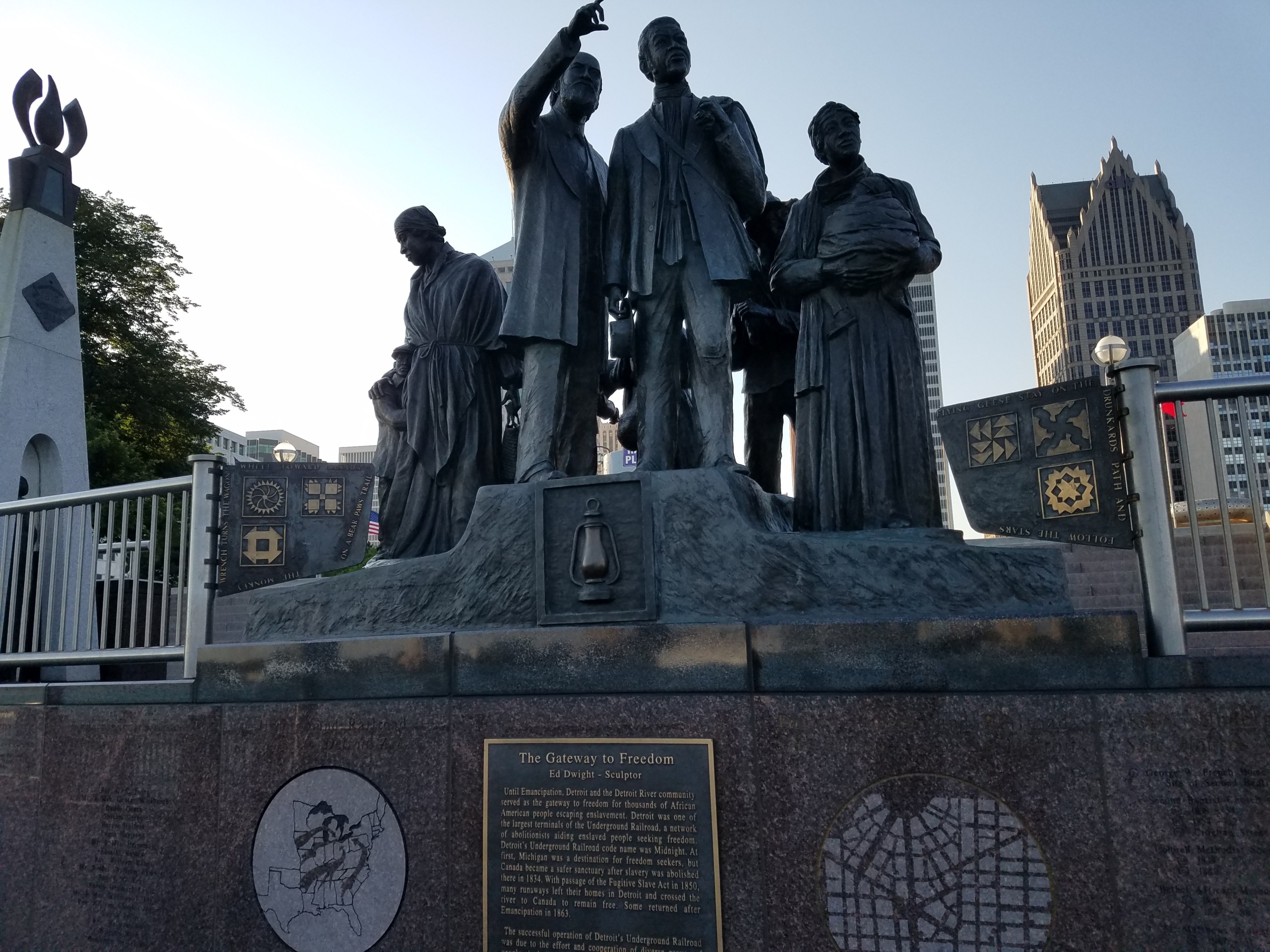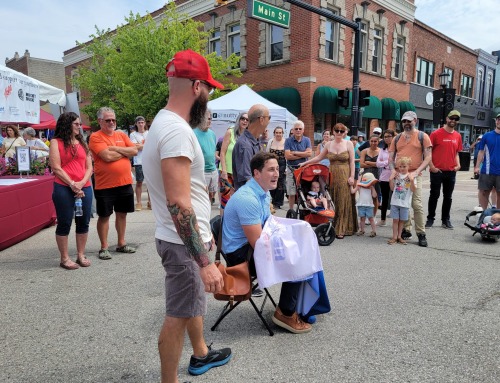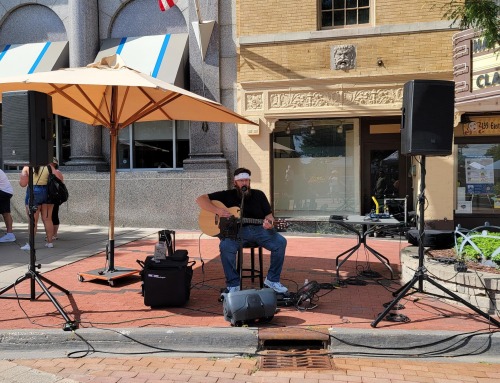In the years before the Civil War, the Underground Railroad was key to helping slaves find their freedom. This railroad was a network of roads and homes that slaves used to reach northern states and Canada. Michigan was a key state in this route, especially for slaves coming up from Kentucky. Before the 1850s, if escaped slaves reached a free state in the north, they could stay there and build a new life. However, there was always the fear of possibly being followed and caught by slave catchers who would bring them back to the south.
The escape from Kentucky to Michigan
Adam Crosswhite was one such escaped slave. Crosswhite was born on October 17, 1799 in Bourbon County, Kentucky. His mother was a slave, and his father was a white slaveholder. Adam had been sold a couple of times before he ended up in the home of Francis Giltner at the age of 20. Two years later, he married Sarah and they had four children: John, born in 1831; Benjamin, born in 1836; Sarah, born in 1842; and Frances, born in 1843. In 1845, Crosswhite learned that Giltner was planning on selling some of his family, so they made the decision to escape.
Using the Underground Railroad, the family made their way to Michigan, arriving successfully in August of that year. They settled near the city of Marshall in Calhoun County. Crosswhite was known as a sober, industrious man, and was well-respected in the area. He told his neighbors about his fears of being captured, and together they arranged for Crosswhite to fire a gun once if he was ever in danger. The neighbors agreed to help if the situation warranted, but all hoped that would never be necessary.
Slave chasers come to Marshall
Unfortunately, in late 1846, Crosswhite’s past came chasing after him. Francis Troutman, the nephew of the Crosswhite’s former owner, arrived in Marshall, claiming to be a lawyer looking for work. In reality, Troutman was a slave catcher out of Kentucky, looking for Crosswhite. With the help of deputy sheriff Harvey Dixon, Troutman located his prey and made plans to capture Crosswhite and bring him back to Kentucky. It is still unknown whether Dixon was bribed to help or if he was pro-slavery.
Citizens band together to protect the Crosswhites
At 4 pm on January 26, 1847, the 10-year anniversary of Michigan becoming a state, Troutman arrived at the Crosswhite cabin. He was accompanied by three other men. One of which was David Giltner, Francis Giltner’s son. They planned take the family back to Kentucky, citing the Fugitive Slave Law of 1793.
Crosswhite saw them coming and fired the single warning shot from his gun to alert his neighbors. He then barred the door. While in Michigan, Sarah Crosswhite had given birth to another child, Henry. Born free, the family did not want to leave the Henry behind, adding to their distress. Troutman and the 3 men broke down the door and tore the house apart looking for all of the children, who were hiding where they could. By then, many men from Marshall had come to the aid of the Crosswhite family. They had heard the gunshot, and arrived along with a local black man, Moses Patteron. He had ridden through the town ringing a bell and shouting that the Crosswhites needed help. Local citizens, both white and black, gathered to aid the Crosswhites that night, numbering between 200 to 300 people once the alarm was given.
Slave chasers arrested
Troutman tried to persuade the people to help him, but was unsuccessful. When he asked the names of those preventing him from accomplishing his mission, the men from Marshall had no fear. Many shouted their names. The Marshall group ended up arresting the Kentucky men and brought them to Justice Randall Hobart. They were charged with breaking and entering and Toutman was also charged with drawing his gun.
Meanwhile, during the confusion and arrests, the Crosswhites took advantage of the distraction and climbed into the wagon of George Ingersoll. He brought them to nearby Jackson. There the family boarded a train for Detroit, and Ingersoll made sure they were not followed. From Detroit, they made their way to Canada.
Repercussions of helping the escaped slave family
If the people of Marshall thought this altercation was at an end, they were very mistaken. This seemingly small event had a national impact. Many people in Kentucky were furious with the civilians of Marshall for helping the Crosswhites, and took the case to court. The courts went so far as to send commissioner Alexander McLean to Canada to interrogate Adam and Sarah Crosswhite. The Marshall civilians were eventually charged with stealing property and unfortunately were found guilty and made to pay a hefty fine of $1,926.
The case went even further. Senator Henry Clay from Kentucky, who was a friend of Giltner, took the case to the Senate. He used the Crosswhite event as an example of why he believed a stronger Fugitive Slave Law was needed. This new law passed in 1850, and provided for the seizure and return of runaway slaves who escaped from one state into another, or into a federal territory, whether slave holding or free. Despite the passage of the Fugitive Slave Act, Michigan did not back down in its views of anti-slavery. Five years later, the legislature passed its own law at the state level, making it illegal for state and local officials to help slave catchers find escapees. As you may recall many historians cite the Fugitive Slave Act as a major cause of the American Civil War.
The fate of the Crosswhite family
History is sketchy when it comes to what happened to the Crosswhites after this incident. Adam and Sarah Crosswhite settled in Chatham, Canada after they escaped in 1847. In 1850, they moved to the Elgin Settlement, also known as Buxton. This was an area of 9,000 acres where more than 1,200 fugitive slaves from all over the United States made a home. It is thought that two of the Crosswhite children died shortly after the Civil war, likely from typhoid when an epidemic swept through the settlement.
The couple did return to Marshall, eventually, where they lived out the rest of their lives. Adam died on January 23, 1878, and Sarah died in 1887. Information on the children is limited, but it appears that Benjamin Franklin Crosswhite died on February 22, 1912, in Michigan. Henry may have fought in the Civil War with the United States Colored Troops. It has also been recorded that the Crosswhite daughter, Sara, married and had eight children.
I find the antebellum period of the American Civil War to be a fascinating time period. So many changes both good and bad were occurring. Michigan being part of the Underground Railroad and the many antislavery citizens willing to help their fellow man can be a source of pride for our state. Families like the Crosswhites who simply wanted to live their lives free and peacefully, benefitted from the tenacity of our early citizens and their efforts to help eradicate slavery not only through the Underground Railroad but also through their own beliefs.






Leave A Comment
You must be logged in to post a comment.